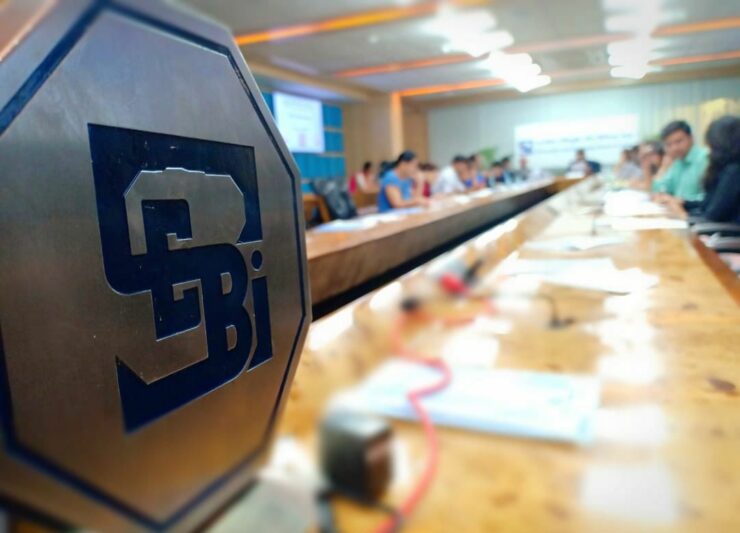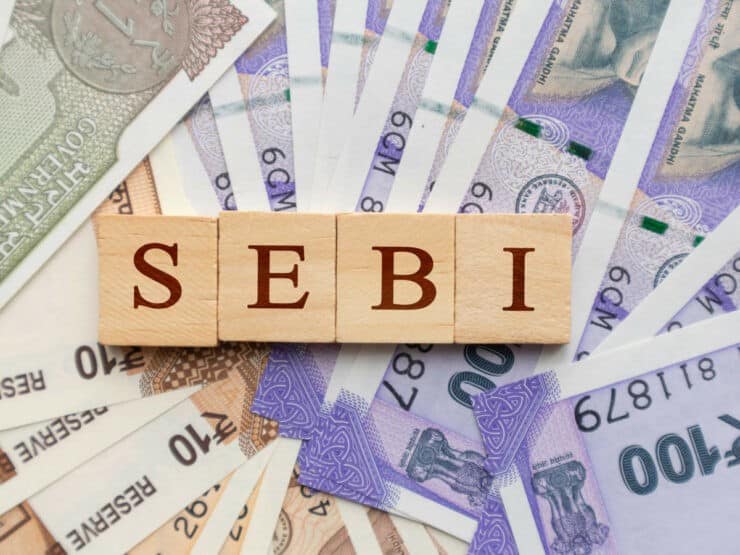The Securities and Exchange Board of India (SEBI) was born off the back of an Act of Parliament and is the regulatory body for the financial instruments space in India.
Our Crypto Signals
1-month subscription
 Up to 5 signals daily
Up to 5 signals daily 76% success rate
76% success rate Entry, take profit & stop loss
Entry, take profit & stop loss Amount to risk per trade
Amount to risk per trade Risk reward ratio
Risk reward ratiomonth
3-month subscription
 Up to 5 signals daily
Up to 5 signals daily 76% success rate
76% success rate Entry, take profit & stop loss
Entry, take profit & stop loss Amount to risk per trade
Amount to risk per trade Risk reward ratio
Risk reward ratiomonth
 Most popular
Most popular
6-month subscription
 Up to 5 signals daily
Up to 5 signals daily 76% success rate
76% success rate Entry, take profit & stop loss
Entry, take profit & stop loss Amount to risk per trade
Amount to risk per trade Risk reward ratio
Risk reward ratiomonth
12-month subscription
 Up to 5 signals daily
Up to 5 signals daily 76% success rate
76% success rate Entry, take profit & stop loss
Entry, take profit & stop loss Amount to risk per trade
Amount to risk per trade Risk reward ratio
Risk reward ratiomonth
Lifetime Subscription
 Up to 5 signals daily
Up to 5 signals daily 76% success rate
76% success rate Entry, take profit & stop loss
Entry, take profit & stop loss Amount to risk per trade
Amount to risk per trade Risk reward ratio
Risk reward ratioWhen it comes to forex trading in India, it’s considered a non-bailable offence under the FEMA Act – that is unless the base currency in the pair is the Rupee (in which case it is legal).
Rumour has it that there is a financial shift around the corner, and the Reserve Bank of India (RBI) is set to modify its limits as a result. As it stands no changes have been implemented, so trading pairs are still illegal (like in a handful of other countries).
With this in mind, reputable SEBI brokers aren’t easy to find. Similarly, some traders struggle to find an offshore broker which accepts Indian investors.
Nevertheless, we’ve found the 5 best SEBI brokers for your consideration. We’ll also impart some useful information with regards to what to look out for when choosing a trustworthy broker and how to sign up.
Eightcap - Regulated Platform With Tight Spreads

- Minimum deposit of just 250 USD to get lifetime access to all the VIP channels
- Use our Secure and Encrypted Infrastructure
- Spreads from 0.0 pips on Raw Accounts
- Trade on the Award-Winning MT4 & MT5 Platforms
- Multi-jurisdictional Regulation
- No Commission Trading on Standard Accounts

What is SEBI?
By the early 1980s, dodgy bankers were grossly breaking the rules and traders suffered. Moreover, shady merchant bankers weren’t opposed to making upmarket prices in the stock exchange. This led to an understandable lack of trust in the financial space.

Before the SEBI Act, 1992, it was the CCI (Controller of Capital Issues) which regulated the Indian financial market, whereas the Capital Issues Act of 1947 controlled the investment space. Fast forward to 1992 and SEBI was created as a constitutional judicial regulatory agency- trusted to regulate the Indian financial markets.
In a nutshell, this body controls financial services, market middlemen, and investors. Essentially this body acts as a safety net by putting rules and regulations in place to be followed to the letter. The idea is to create a transparent market for traders – and to hold brokers accountable for any malpractice or failing to follow the code of conduct set in place.
How do Brokers Gain Approval from SEBI?
As we mentioned, the body observes financial conduct in the securities market and protects you as an investor by imposing strict rules and regulations.
There is a list of rules that all licensed brokers have to follow, and the same principles stand for the FCA, ASIC, CySEC and many other regulatory jurisdictions. After all, the main goal is to make the financial markets safer. Brokers need to put forward a range of detailed audits, segregate customers funds, and pass random inspections.
We’ve put together a brief explanation underneath some of the main demands regulatory bodies like SEBI have on brokers
Due Diligence Procedures
Regulated brokers need to show a clear understanding of due diligence in detailed reports. This needs to form a part of the company’s framework.
If a client goes from investing say $1,000 per calendar month, to $30,000 – the broker needs to investigate where the money came from and file a report to the relevant regulatory body.
KYC
Regulated brokers which fail to comply with KYC (Know Your Customer) rules will be fined. Simply put, any company offering a financial service must confirm the identity of each and every customer as per KYC rules.

- Obtaining the name, address and photo ID of each and every client.
- Confirming that the customer’s information is correct/they are who they say they are.
- Gain some insight into the customer’s financial situation.
- Oversee the customer’s trading endeavours.
We’ve all had to go through KYC when joining a site before, but perhaps you didn’t know that it was a legal requirement. All of the rules on this list help create a much safer and clearer trading environment for us all.
Client Account Segregation
Whilst bank/fund account segregation has been around for about four decades, it’s also another rule to adhere to. Crucially, broker companies must submit monthly reports to back it up.
The bottom line is, brokers have to put your capital into a separate account to the account of the company. This means, for example, in the event of a brokerage firm going out of business, your money can’t be taken as debt and is protected from financial crime.
SEBI has recently introduced an additional system to combat the abuse of customer securities. The system is based online and holds details of clients securities and where they are held.
Not only that, but the system will include securities gathered by depositories, exchanges and companies concerning all trades. SEBI is then able to compare the data with that of the dematerialised account and the presentation of data from the brokerage the following day.
Yearly Audit
SEBI brokers are legally obligated to submit an annual audit. Take note, regulators also carry out random checks and can demand to see some of the following information at the drop of a hat:
- Details of all financial assets traded (including volume).
- Margin trading numbers.
- Receipts of sub-class assets.
- A full breakdown of fees.
- A clear explanation of any leverage used and offered.
- Differentiating between orders executed by the client, and those executed by the brokerage.
When audits are found to be incomplete (missing info) then these bodies will find the company in question. A couple of years ago, after a random check 3 years earlier, SEBI found that a share broker firm in India was disobeying its regulatory rules. The brokerage was fined Rs 1.1 million for non-compliance with not only AML, but also KYC and fund segregation.
What can I Trade With a SEBI Approved Broker?
All brokers differ slightly when it comes to asset diversity. For this reason, if there is an asset you want to focus on entirely then you should check that the broker offers that asset. Some brokers only focus on cryptocurrencies for example, whereas others have a whole catalogue of asset classes for you to trade.

To give you some inspiration, we’ve listed some of the assets offered at Indian-friendly trading platform eToro.
Commodities
To this day commodities trading is very much influenced by real events. The reason being, they have real-life tangible representation – think gold, silver, energy, and oil.
Political unrest and big world events can have a huge effect on the markets, such as the effect on the world’s oil supplies when the US invaded Iraq in 2003.

Here are some examples of soft commodities:
- Coffee.
- Cotton.
- Rice.
- Soybean.
- Cocoa.
- Sugar.
- Corn.
- Livestock.
- Wheat.
- Fruit.
When it comes to hard commodities, this usually refers to things that need to be extracted, or mined.
Here are some examples of hard commodities:
- Base metals.
- Precious metals.
- Crude oil.
- Fuel Oil.
- Biofuels.
- Coal.
- Natural Gas.
- Middle distillates.
- Power.
- LNG.
Stocks and Share Dealing
Stocks are great if you plan on investing in a medium to long term basis. This particular market is really dynamic as every single stock will be affected by events like shifts in price, news, new products being launched and earnings reports.
You can buy and sell shares and choose from a huge variety of global companies. A few examples of stocks that are popular with Indian traders are: GoPro, Ford, Apple, Amazon, Disney, Tesla and thousands more.
When trading stocks in India – opening a long (buy) position without leverage signifies your investment in the underlying stock – so the asset will be bought in your name. Then there is CFD trading which we will talk about next.
CFDs (Contract for Difference)
Trading platforms like eToro, for instance, allow Indians to use CFDs. This means that traders are able to open short (sell) positions, make the most of leverage and of course – also open long positions.
Please note though that according to the RBI, leverage is not permitted when using a SEBI broker. However – and as we have discussed thus far – most Indian traders will use regulated offshore platforms that are licensed in nations like the UK, EU, Australia, or Singapore.
Cryptoassets
Most Indians have heard of Bitcoin. There are actually over 2,000 different cryptocurrencies, with more being created every year.
Here are some of the most traded crypto assets that are available in Indians.
- Bitcoin (BTC).
- Litecoin (LTC).
- Ripple (XRP).
- Tether (USDT).
- Monero – Guide, Tips & Insights | Learn 2 Trade (XMR).
- EOS (EOS).
- Ethereum (ETH).
- Bitcoin SV (BSV).
- Bitcoin Cash (BCH).
Cryptocurrencies show high volatility and can frequently fluctuate into double figures, in one single trading day.

Furthermore, it’s a good idea to begin by trading cryptocurrencies on a demo account before risking your own funds.
Indices
Each and every stock market has its own ‘index’, or multiple ‘indices’ – all of which mirror the mood of that section of the market. Due to the fact that indices are made up of heaps of different assets, they are considered a bit more steady than separate stocks.
When one company is doing well, particularly one with more weight, this can lift the whole balance of the index. On some platforms, such as eToro, indices are traded as CFDs (see above) because they can’t be invested in par say.
Examples of popular indexes include the S&P 500, FTSE 100, NASDAQ 100, and the Dow Jones 30.
Forex
In order to trade on the global forex market, you need to have a broker behind you to make it happen. As you know, in India you can only trade forex pairs which include the INR (Indian Rupee,.t
Examples include: EUR/INR, USD/INR, JPY/INR and GBP/INR.

- Exotic FX pairs: USD/HKD, AUD/MXN, NZD/SGD, EUR/TRY, GBP/ZAR and JPY/NOK
- Major FX pairs: EUR/USD, USD/JPY, AUD/USD, NZD/USD, USD/CAD, GBP/USD, NZD/USD, and USD/CHF
- Minor FX pairs: EUR/AUD, NZD/JPY, EUR/GBP, GBP/JPY, GBP/CAD, and CHF/JPY
Some Indian traders use e-wallets like Skrill and Neteller to transfer money from India. Trading platforms like eToro will convert a range of currencies into US dollars to trade with as standard (this comes with a 0.5% conversion fee).
How to Find a Good Overseas SEBI Broker
As we’ve touched on, in order to use an overseas broker you will need to first make sure they are regulated and that they have the legal remit to accept Indian residents.
There aren’t any ‘SEBI brokers’ as such, but there are SEBI approved brokers which enabled Indian people to trade from their country, in markets around the world

For example, eToro – which is not only one of the most popular trading platforms in India, but globally – is a SEBI registered broker. It is also regulated by the FCA, ASIC, and CySEC.
Commission Framework
The commission framework of a brokerage firm really makes a difference to your potential gains. After all, it is a weekly or monthly outgoing you need to consider when planning your trading budget.
To give you an idea of how brokerage commission fees might work please take a look at our example below:
- Let’s imagine you are trading USD/INR.
- Your broker charges a commission fee of 0.6%.
- You stake $2,000.
- In this scenario, the broker will take $12 commission ($2,000 – 0.6% = $1988).
The good news is that we typically only recommend SEBI brokers (or regulated platforms accepting Indians) that allow you to trade commission-free.
Assets Available to you
Chances are if you’re a new trader, you might only want to focus your attention on one or two assets. As you become more experienced in the markets, you might decide to diversify your portfolio. In order to do that you need a variety of different assets to choose from.
No two brokers are the same, so if you are only really interested in say forex for example, then make sure the brokerage offers it. Moreover, we recommend choosing a company with a range of assets, in case you want to diversify later down the line.
Deposit and Withdrawal Procedure
Using eToro as an example – Indian residents can deposit and withdraw funds using the following payment methods:
- Credit Cards.
- Debit Cards.
- International Bank Transfer.
- PayPal.
- Skrill.
- Neteller.
- WebMoney.
- UnionPay.
Crucially, remember that on a platform such as eToro you will need to deposit in USD, so will be charged a small conversion fee of 0.5%. As we mentioned, some Indian traders opt to use e-wallets like Skrill so that they are not paying from an Indian bank.
Low Spread
It’s not only commission fees which can impact your trading profits, as spreads can make a big difference too. For those of you who aren’t aware, the spread of any asset is depicted using ‘pips’. Pips are the difference between the ‘buy’ price and the ‘sell’ price of the tradable asset in question.
Here is a very simple example of how pips are shown:
- Let’s say USD/INR has a buy price of 68.8000.
- The same pair has a sell price of 68.8004.
- In this scenario, USD/INR has a spread of 4 pips, as this represents the gap between the two prices.
- As such, you need to increase the investment by 4 pips to break even.
Once again, we tend to stick with SEBI brokers that offer tight spreads. This ensures that you keep your trading costs to a minimum.
Technical Analysis Features
Most Indian trading platforms offer clients technical analysis tools as part of the service. Technical analysis and chart reading is crucial when it comes to trading successfully. The more tools the better, especially in the case of currency trading.

- The Relative Strength Index (RSI).
- Exponential Moving Average (EMA).
- The Accumulation/Distribution Line (A/D line).
- Fibonacci Retracement.
- Moving Average Convergence Divergence (MACD).
- The Stochastic Oscillator.
- The On Balance Volume Indicator (OBV).
- The Average Directional Index (ADX).
- Standard Deviation.
- Aroon.
It can take many months to learn how technical indicators work, so you’ll need to dedicate plenty of time understanding your trade before risking large volumes of capital.
Educational Material
If you happen to be new when it comes to trading, educational material and tools found on some broker websites can be a lifesaver. Traders of all skill levels swear by live market data, charts and signalling tools, so it makes sense to check out educational content available to you.

Another thing which could be considered as an educational tool is demo accounts. They are a superb way to learn the ropes of any online trading floor.
Customer Support Team
Just remember that if, for example, your brokerage is based in the UK -you will be 4 and a half hours ahead. If your broker was based in Washington, for instance, you would be 9 and a half hours in front.
For this reason, it would be much better for you if your broker platform provides a variety of customer support avenues such as live chat, email, telephone, and an on-site contact form. A company with a comprehensive FAQ section can also be very valuable in case help isn’t available 24/7.
How to Sign up With a SEBI Broker
There are around 300 SEBI registered broker firms in India, but it doesn’t have to end there. After all, the best online trading platforms tend to be based overseas.

If you are still looking for inspiration when it comes to choosing the right platform for you, we’ve listed our top 5 brokers towards the end of this page. Each and every selection is regulated by top bodies from around the world, such as the FCA, ASIC and CySEC.
When you have done some research and found a broker which accepts clients from your part of the world (like the 5 we’ve listed), then you can follow our simple steps to get started.
Step 1: Register for an Account
Before you can get started you will need to sign up to the respective brokerage. Head over to the official website and hit ‘sign up’.
Here you will need to provide your first and last name, home address, date of birth, and other personal information. You’ll also need to select a unique username and password, and email address.
Step 2: Identify Yourself
We explained further up this page about the importance of KYC – the strict rule set out by regulatory bodies. All reputable brokers will request a clear photo of your Indian passport, ID card or driving licence.
Next, the broker will ask you for a photograph of a recent bill or bank statement with your full name and address on it. Chances are you will have to answer a few questions relating to your financial situation such as previous trading experience, employment status and salary.
Step 3: Make a Deposit
We’ve gone through the most commonly available deposit options, so now you simply need to select the payment method you want to use, and fund your new regulated broker account.
Step 4: Begin to Trade
If you feel ready to dive right in and start trading you can. If you are a newbie when it comes to trading then we recommend starting with a small amount, or trying out a demo account until you feel ready to trade with real money.
Best SEBI Regulated Brokers of 2023
So now you are aware of all of the metrics you need to look out for when you are on your search for an Indian-friendly regulated brokerage, we thought we would put together a list of our top 5 regulated brokers which accept Indian clients.
1. AvaTrade - Great for Beginners
AvaTrade is a very well known brokerage amongst traders. The site is regulated across 6 jurisdictions and you will have access to a multitude of instruments like forex, stocks, indices, commodities, options, ETFs, cryptocurrencies, and bonds.
As well as having over a thousand assets to choose from, this platform is a multilingual service with 15 customer service languages. If you are new to trading, the AvaTrade platform has you covered with a step by step guide on how to trade online.
The company has it’s own app called AvaTrade GO which is definitely worth checking out. It's available via Google Play for Android and the App Store of iOS users. The platform also supports MetaTrader4 which is great for technical analysis.

- AvaTrade GO app
- Collection of educational video tutorials
- 6 regulatory jurasdictions
- Inactiveity fees payable
- slow telephone customer service
2. VantageFX – Ultra-Low Spreads
VantageFX VFSC under Section 4 of the Financial Dealers Licensing Act that offers heaps of financial instruments. All in the form of CFDs - this covers shares, indices, and commodities.
Open and trade on a Vantage RAW ECN account to get some of the lowest spreads in the business. Trade on institutional-grade liquidity that is obtained directly from some of the top institutions in the world without any markup being added at our end. No longer the exclusive province of hedge funds, everyone now has access to this liquidity and tight spreads for as little as $0.
Some of the lowest spreads in the market may be found if you decide to open and trade on a Vantage RAW ECN account. Trade using institutional-grade liquidity that is sourced directly from some of the top institutions in the world with zero markup added. This level of liquidity and availability of thin spreads down to zero are no longer the exclusive purview of hedge funds.

- The Lowest Trading Costs
- Minimum deposit $50
- Leverage up to 500:1
Final Thoughts
India has a population of nearly 1.4 billion people, but only around 20 million are actively trading. That said, this number seems to have grown since lockdown was imposed due to the global COVID-19 pandemic.
In India, brokers are regulated by SEBI. However, the body does not issue licenses. In fact, it was only in the early 90s that the agency was given the authority to manage the stock exchange markets.
We mentioned already that trading FX currencies (without containing the rupee) is illegal and therefore a punishable offence in India. But, all is not lost. Many traders in India choose to trade via reputable and well known overseas brokers like Skilling, Capital.com and AvaTrade.
Before you choose a broker, always carry out some research, make sure the platform is regulated by an official body, ensure they accept Indian clients, and always check the fees and terms.
AvaTrade - Established Broker With Commission-Free Trades

- Minimum deposit of just 250 USD to get lifetime access to all the VIP channels
- Awarded Best Global MT4 Forex Broker
- Pay 0% on all CFD instruments
- Thousands of CFD assets to trade
- Leverage facilities available
- Instantly deposit funds with a debit/credit card

